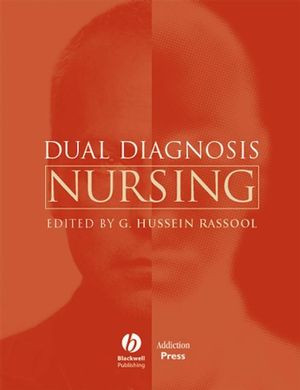

Most ebook files are in PDF format, so you can easily read them using various software such as Foxit Reader or directly on the Google Chrome browser.
Some ebook files are released by publishers in other formats such as .awz, .mobi, .epub, .fb2, etc. You may need to install specific software to read these formats on mobile/PC, such as Calibre.
Please read the tutorial at this link: https://ebookbell.com/faq
We offer FREE conversion to the popular formats you request; however, this may take some time. Therefore, right after payment, please email us, and we will try to provide the service as quickly as possible.
For some exceptional file formats or broken links (if any), please refrain from opening any disputes. Instead, email us first, and we will try to assist within a maximum of 6 hours.
EbookBell Team

4.3
38 reviewsDual Diagnosis Nursing is a comprehensive text for practitioners on contemporary approaches to working with dual disorder and dual diagnosis patients. It explores both clinical and theoretical perspectives in a variety of different care and treatment settings, addressing key issues such as needs of special populations, multi-dimensional assessment, dealing with emergencies, prescribing and medication management, nursing and psychological interventions, spiritual needs, carers’ interventions and professional development.Content:
Chapter 1 Understanding Dual Diagnosis: An Overview (pages 3–15): G.H. Rassool
Chapter 2 Policy Initiatives in Substance Misuse and Mental Health: Implications for Practice (pages 16–24): A. Hammond
Chapter 3 Understanding Drug use and Misuse (pages 25–33): G.H. Rassool and J. Winnington
Chapter 4 Psychoactive Substances and their Effects (pages 34–44): G.H. Rassool and J. Winnington
Chapter 5 Mental Health: An Introduction (pages 45–53): G.H. Rassool and J. Winnington
Chapter 6 Alcohol and Dual Diagnosis (pages 54–61): K. Moore
Chapter 7 Eating Disorders and Dual Diagnosis (pages 62–72): M. Abuel?Ealeh and R. Barrett
Chapter 8 Problem Drug Use and Personality Disorders (pages 73–78): P. Phillips
Chapter 9 Black and Ethnic Minority Communities: Substance Misuse and Mental Health: Whose Problems Anyway? (pages 81–96): G.H. Rassool
Chapter 10 Vulnerable Young People and Substance Misuse (pages 97–106): M. Epling and J. McGregor
Chapter 11 Meeting Multiple Needs: Pregnancy, Parenting and Dual Diagnosis (pages 107–115): F. Macrory
Chapter 12 Addiction and Mental Health Nursing: A Synthesis of Role and Care in the Community (pages 117–129): K. Moore and G.H. Rassool
Chapter 13 Shared Care and Interprofessional Practice (pages 130–139): A. Simpson
Chapter 14 Primary Care and Dual Diagnosis (pages 140–149): R. Lawrence
Chapter 15 Dual Diagnosis in Acute in?Patient Settings (pages 150–160): J. Gallagher and S.J. Scott
Chapter 16 Dual Diagnosis in a Forensic Setting (pages 161–168): P. Ford and P. Woods
Chapter 17 Models of Care and Dual Diagnosis (pages 169–173): D. Gallivan
Chapter 18 Framework for Multidimensional Assessment (pages 177–185): G.H. Rassool and J. Winnington
Chapter 19 Dealing with Intoxication, Overdose, Withdrawal and Detoxification: Nursing Assessment and Interventions (pages 186–195): G.H. Rassool and J. Winnington
Chapter 20 Prescribing Authority and Medication Management in Mental Health and Addiction Nursing (pages 196–208): G.H. Rassool and J. Winnington
Chapter 21 Spiritual and Cultural Needs: Integration in Dual Diagnosis Care (pages 209–221): A. Hammond and G.H. Rassool
Chapter 22 Dual Diagnosis: Interventions with Carers (pages 222–231): D. Manley and L.M. Rayner
Chapter 23 Psychological Approaches in the Treatment of Dual Diagnosis (pages 232–239): K. Barry
Chapter 24 A Person Centred Approach to Understanding and Helping People with a Dual Diagnosis (pages 240–252): R. Bryant?Jefferies
Chapter 25 Motivational Interviewing (pages 253–260): P.G. Mason
Chapter 26 Relapse Prevention in Dual Diagnosis (pages 261–269): D. Manley and J. McGregor
Chapter 27 Educational Development and Clinical Supervision (pages 273–284): G.H. Rassool
Chapter 28 The Role and Competencies of Staff in the Treatment of Coexisting Problems of Mental Health and Substance Misuse (pages 285–295): R. Edwards